Board of Directors & Staff
Board of Directors

Appropriate land use and environmental protection are among the greatest challenges of our time. Our region, our country, and our planet are at a critical juncture, and cooperative approaches from all segments of society are needed to address the issues we are facing.
Steven J. Bolotin, Chair
(Plymouth, MA)
Steven J. Bolotin is a 30+ year legal professional who has focused his career in the areas of environmental, municipal, construction, and professional practices law. He is a graduate of Stony Brook University (BA – Political Science), The American University (JD – Washington College of Law), and King’s College London (LLM – Transnational Finance).
He began his professional career working in private practice, where he focused on assessing responsibility for environmental contamination claims. He then became general counsel for a trade association management company, where he served as general counsel for multiple Washington D.C. area-based trade associations (including ASFE – The Association of Engineers Practicing in the Geosciences, and the Professional Liability Agents Network). There, he provided legal and educational guidance to professionals nationwide, and assisted in the development of programs for the remediation of hazardous waste Superfund sites.
Steve now serves as a private attorney and ethicist, providing legal guidance and expert services relating to professional ethics obligations. He also serves the public in multiple capacities, including as an appointed hearing officer for the Massachusetts Board of Bar Overseers, and as an elected member of the Plymouth (MA) Planning Board.

Public education is lacking. There are many recycling myths that make people question why they need to be a part of the solution. I want to concentrate on reducing the amount of solid waste and bulky waste streams in a sustainable way. Recycling more and disposing less is the answer, and community involvement and public education are critically important.
Denise P. Cumings, Treasurer
(Allenstown, NH)
Denise P. Cumings currently serves as Compliance Administrator for the Hooksett Central Water Precinct. She previously spent four years with the Hooksett Recycling and Transfer Division, including two years as Crew Chief for the Transfer station. In very challenging times she educated herself with EPA permitting and groundwater testing requirements as well as NHDES requirements on Post Closure Landfills, and sought out vendors to increase profits from recycled materials. Denise holds Solid Waste Operator Training Principal Operator Level 4 certification, Underground Storage Tank A license, Hazmat Co-Ordinator Certification and CDL-B license. Her career has included 15 years as an administrator for a septic company involving all aspects of the business from accounting, payroll, and NHDES reporting to interacting with customers. Denise also partners with her husband in ownership and operation of A-Town Septic Design and Construction.

“The future is already here, its just not evenly distributed. – William Gibson
Emily Dwinnells
(Kittery, ME)
Emily Dwinnells is the principal strategist for the Maine Space Complex and founder of Artemis Consulting, an innovation and business strategy consultancy focused on helping clients identify growth opportunities and unlock new sources of value through innovation and change management. As the principal architect of the business and operating model for the Maine Space Complex and co-founder of the Maine Space 2030 initiative, Emily has investigated the feasibility of a Maine-based launch facility, defined the market opportunity and designed the business units and operating model for the Maine Space Complex. She has also lead community engagement and education initiatives across the state. She is currently developing a space workforce strategy for Maine to create new pathways for graduating students to enter the emerging space industry locally.
In her previous roles leading the technology practice at a boutique strategy consulting firm and as a consultant for a large management consulting firm, Ms. Dwinnells advised Fortune 500 companies on emerging technologies and trends including digital transformation, New Space tech applications, Blockchain, IoT, Machine Learning and A.I., compute infrastructure including storage and edge solutions, among others. She is experienced at leading market entry strategies for new ventures, evaluating emerging technology markets and opportunities, and designing and deploying new product development processes grounded in change management.
Emily also has experience in sustainability, working at the Rainforest Alliance as the Chief of Staff to the President where she managed the Clinton Global Initiaitive, participated in ECOSOC committee at the UN, and developed a financing mechanism to connect small sustainable farming businesses financing in Central and South America. She was also a fellow of the Environmental Defense Fund where she worked on defining and measuring Citi’s sustainability goals.
Ms. Dwinnells received a dual MBA from the Stephen M. Ross School of Business and MS in Environmental Policy from the University of Michigan in 2012 where she was a fellow of the Fred and Barbara Erb Institute for Sustainability, the Tauber Institute for Global Operations as well as a Ford Blue Oval Scholar.
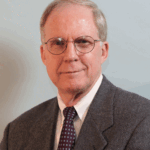
The number one thing that needs to change is ‘public opinion’. If voters don’t care about sustainable solid waste management, then elected officials won’t either. If consumers don’t demand and expect something different, then businesses won’t care either. There is much work to do.
Michael J. Hanlon, III
(Plymouth, NH)
Mike was a civil/environmental engineer for 55 years, having graduated from Northeastern University in 1967 with a Bachelor of Science Degree in Civil Engineering and becoming a registered professional Engineer in 1974. He spent the next 43 years working in both the public and private sectors on a wide variety of environmental projects and still to this day maintains his engineering license.
Beginning in the 1980s, the DEP began mandating that old dumps (landfills) be closed and capped because many (if not all) of them were contaminating groundwater. Mike involved himself in solutions.
Forty years later, according to the Massachusetts 2030 Solid Waste Master Plan, the state’s waste-to-energy facilities are at full capacity and no new ones will be built. Landfill capacity is expected to run out before 2030. Meanwhile, solid waste management is evolving at a meteoric pace.
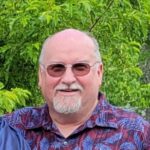
Recycling has always been a priority by which I live. Collaborative Solid Waste Strategies is a dynamic forward-thinking group and I am pleased to be a part of it.
J. Richard Jaques, Sr.
(Penacook, NH)
Rick’s education included Bible College, the University of Massachusetts, and Granite State College where he became interested in the field of plastics. While working his full-time job in the plastics industry, he also served as the volunteer Deputy Fire Chief in Barnstead, NH, and became an accredited professional firefighter and certified state firefighter instructor. Rick also served as the Executive Director of the Penacook Community Center, a childcare center for 150 area children. He has 45 years of experience in nonprofits and is currently Chair of the City of Concord Heritage Commission.
During his career work in the field of plastics, he was promoted to the position of Production Superintendent at Rehrig Pacific Company, a plastics injection molding company. Rick was highly respected in the science of plastics with specialized competence in the resin classifications of HDPE, LDPE, PET, and PP. RPC.
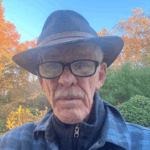
Each professional assignment has required setting goals, developing new and expanding existing resources, managing assets, evaluating outcomes, making tactical changes, and maximizing growth through partnerships. This is what Collaborative Solid Waste Strategies is all about.
Peter L. Neville
(Plymouth, MA)
With over twenty years of service to nonprofit educational and service organizations, Pete has filled positions at all levels: on Board of Directors, in Senior Management, and as Program Manager. Central to these positions was the initiation and development of capital and personnel resources to sustain and expand the delivery of services to individuals within both public and privately funded organizations.
As co-owner of a health benefits brokerage firm, he developed and expanded sales and services to businesses in Massachusetts. Volunteer engagement throughout his career included leadership roles in Rotary, Council on Aging, Chamber of Commerce, and the Congregational Church.
Currently retired, he is an elected town meeting member for the Town of Plymouth, MA, and actively takes part in forums dedicated to better government. He manages a golf league, and with his wife spends time with their grandchildren.

Waste tells a story, and it unites us all.
Mikey Pasciuto
(Burlington, MA)
Mikey Pasciuto currently serves as the Co-Founder at Scrapp, a start-up dedicated to creating data-driven sustainable waste programs. Through Scrapp, Mikey specializes in product and packaging recyclability on a global scale. Mikey was born and raised in Massachusetts and graduated from the University of New Hampshire in 2021 with a dual degree in Mechanical Engineering and Sustainability. His professional interests include renewable energy, recycling, and sustainable systems. As the CEM Division YP for SWANA, Mikey is also in charge of hosting webinars and helping other young professionals get their start in the solid waste industry.

Bringing sustainable best practices that I have learnt on an international stage to make a difference locally, in the place I have established roots with my family, is a personal goal of mine. I’m excited for the challenge of shaping the future of sustainable solid waste management in New Hampshire.
Grant Smith
(Nottingham, NH)
Grant has dedicated his academic and professional career to sustainability. Originally from the UK, Grant has a Bachelor of Science degree in Geography from the University of Manchester. He started his professional career working for municipalities in various roles within Solid Waste teams. His responsibilities ranged from educating residents about how to use their services through communication campaigns, managing the rollout of new programs and ongoing service improvements, and working collaboratively with key stakeholders to align policies. All under the overarching objective of meeting government set targets and goals.
Grant moved to the US in 2016, with his wife, a New Hampshire native. He shifted within the industry from the public sector to private sector, using all his experience to help municipalities and private haulers transform their solid waste services through digital solutions. Grant is a Senior Customer Success Manager at Routeware Inc. and works with clients across North America to realize service efficiency, time and money savings, and a shift towards digitalization and data informed decision making.
Outside of academia and work, Grant has a young family who all enjoy experiencing the splendor of New England’s natural landscape throughout the year. So the future of sustainable practices in the area is something that’s extra important and close to home.
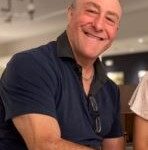
Given technology/equipment that is available today the New Hampshire policy makers should be much more aggressive in setting diversion goals of a minimum of 75% by 2030. It is incumbent on the State to understand the threat of climate change and to take aggressive practical measures to meaningfully reduce carbon emissions associated with waste management. We do not have the luxury of being passive by setting laughably low diversion standards and thinking we have an abundance of time to achieve these inadequate goals.
Duncan P. Watson
(Drewsville, NH)
Duncan currently serves as the Assistant Director of Public Works for the City of Keene, NH, where he has been employed since 1992. He runs the Solid Waste Division which features the largest municipally operated materials recovery facility in the State of New Hampshire. This facility processes upwards of 7,000 tons per year (operated off the grid using a 100% post-consumer biofuel generator that replaced a landfill gas-to-energy generator), a 40,000 ton per year transfer station, an award winning ‘Household Hazardous Waste Collection Facility’, and an organics composting operation.
During his tenure in the Solid Waste Division, the City of Keene was named the best Municipal Recycling Facility in the state and Duncan was awarded “Recycler of the Year” by the Northeast Resource Recovery Association. He serves on the New Hampshire Solid Waste Management Council, NH Solid Waste Task Force, and is a founding member of the Solid Waste Environmental Excellence Protocol standard (SWEEP).
Duncan has a bachelor’s degree in Business from the University of New Hampshire and a Master of Environmental Science degree from Antioch New England University.
Staff
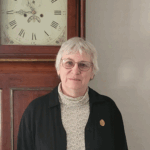
My introduction to the world of solid waste was organizing a five-town roadside clean-up on the first Earth Day when I was a junior in high school, and the multiple pick-up loads collected were delivered to my mother’s barn! The Science Club spent April vacation and many weekends thereafter sorting the trash and delivering glass and metal to local recycling venues.
Carol R. Foss, Executive Director
(Penacook, NH)
Carol holds a B.A. in Biology from Colby College, a M.S. in Zoology from the University of Connecticut, and a Ph.D. in Wildlife Ecology from the University of Maine. She currently serves as Senior Advisor for Science and Policy at New Hampshire Audubon, where she is approaching 50 years of employment. Her career has included a combination of field research in conservation science and advocacy for sound environmental policies. Carol sees Collaborative Solid Waste Strategies as an opportunity to help shape the next stage of evolution for solid waste management in New Hampshire.
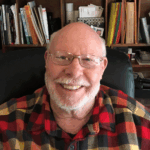
Long gone are the days when I looked forward to accompanying my father for our Saturday morning trip to the dump. Discarded tires, refrigerators, and just about any and everything was fair game and into the smoldering trash it went. We have come a long way since then, but still have a long way to go.
Clark Corson, Program Director
(Plymouth, MA)
Clark earned B.A. degrees in Political Science and Geography while minoring in Forestry and Wildlife Management at the University of New Hampshire. Following a two-year stint in the United States Army, including one year in Vietnam, he spent 42 years as a lobbyist for the beverage industry. Clark looks forward to working with partners and decision makers to advance practical improvements in solid waste management.
Stay in Touch
Join our email list to stay on top of the latest news on sustainable solid waste management, including action alerts for ways you can make your voice heard!
